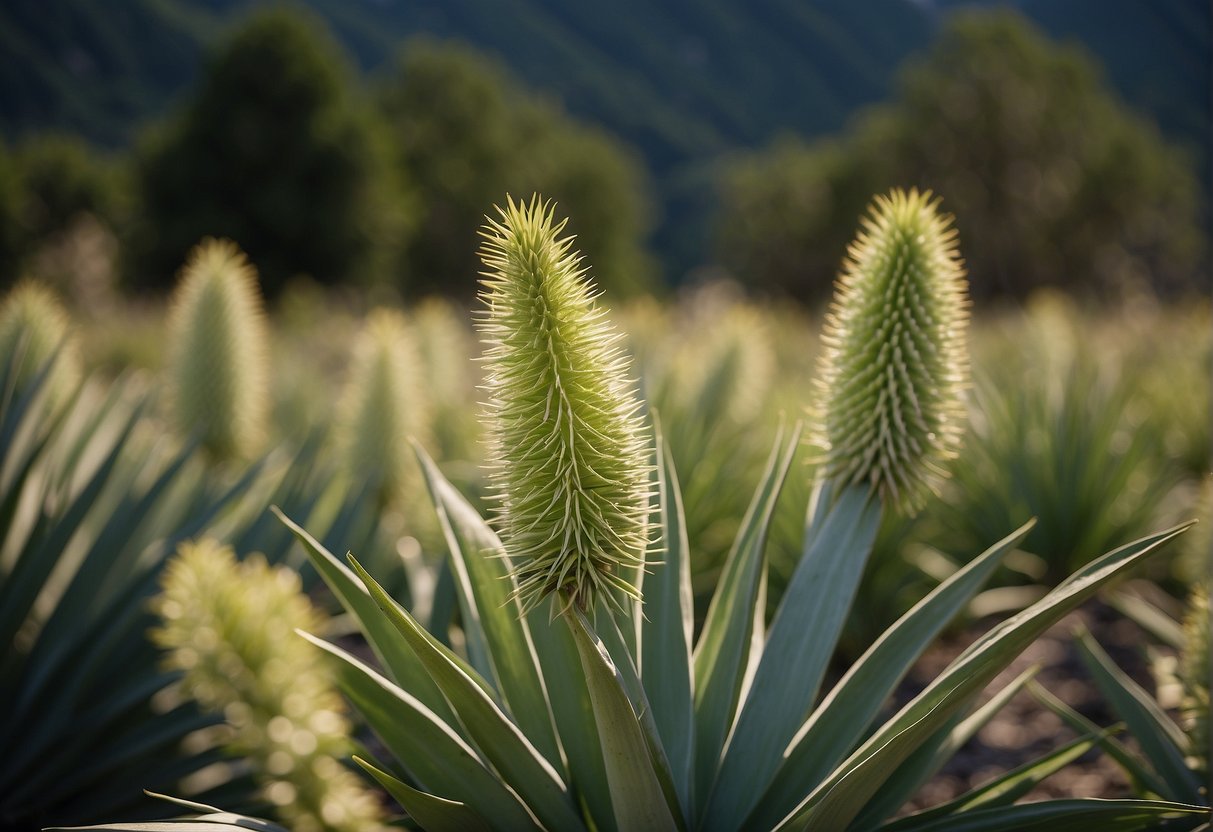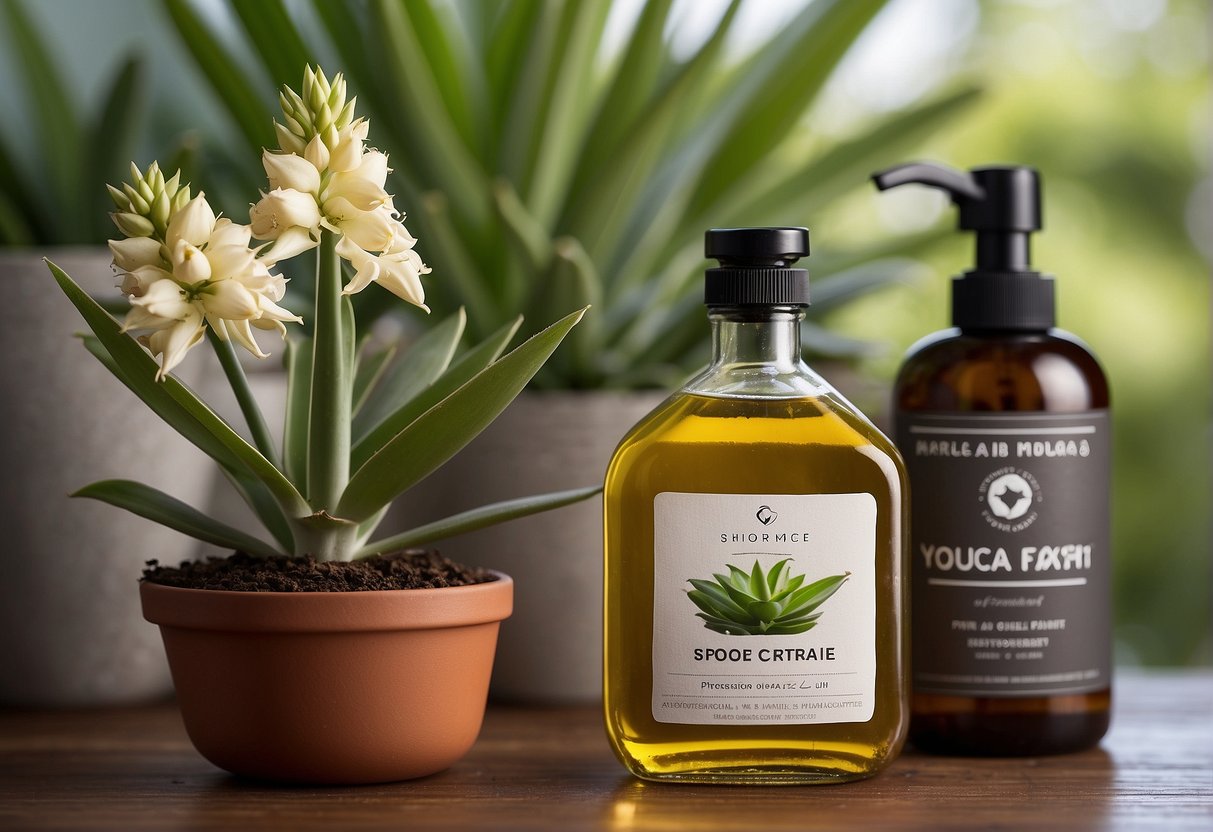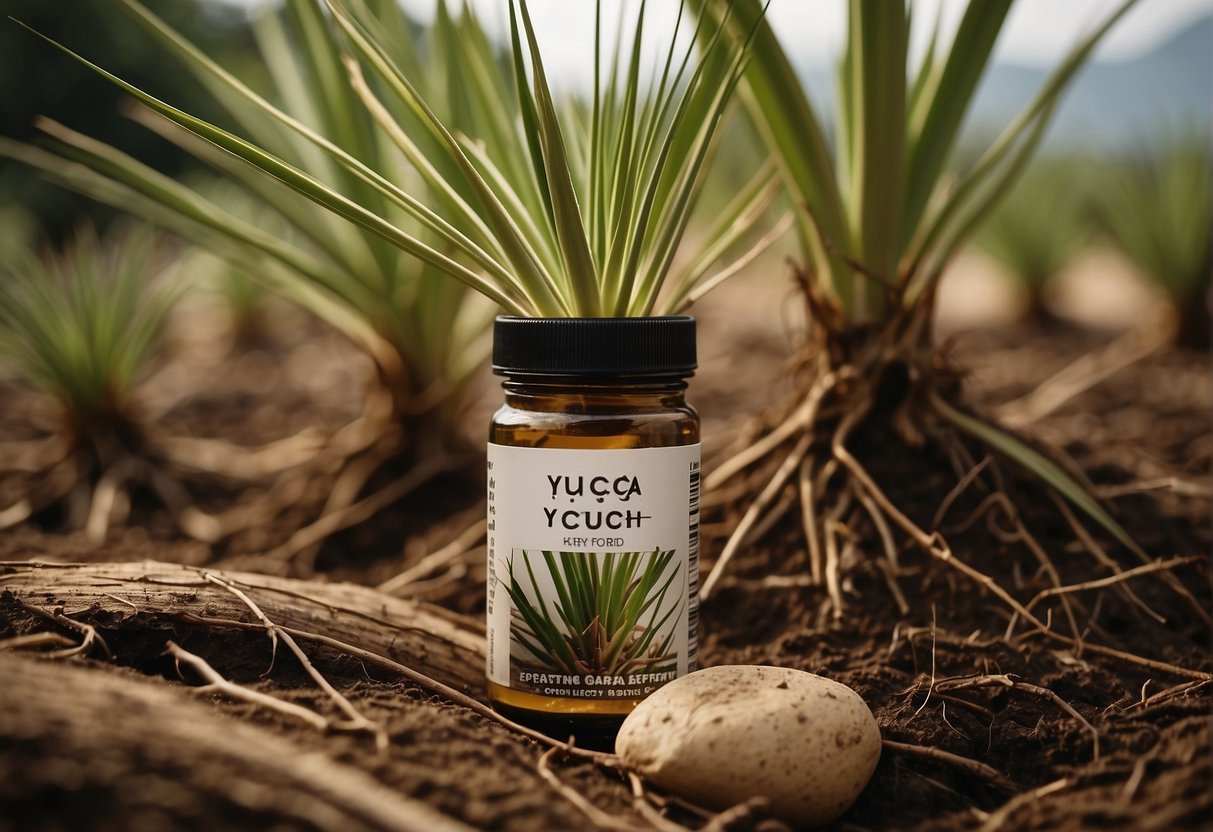As a gardener in search of a natural option to promote the growth of your plants and the well-being of your soil, you might be familiar with yucca extract. This natural product, obtained from the yucca plant roots, has a long history of being utilized to bolster plant development and ameliorate soil composition. Nevertheless, it’s crucial to know the right amount of yucca extract to use to ensure your plants remain safe from any possible hazards.

Yucca extract is a powerful substance that can have both positive and negative effects on your plants, depending on how it’s applied. While small doses of yucca extract can help improve soil health and promote healthy root growth, too much of it can actually harm your plants. In this article, we’ll explore the proper application of yucca extract and potential risks associated with overuse, so you can make an informed decision about whether it’s right for your garden.
Key Takeaways
- Yucca extract can be a natural alternative to boost plant growth and soil health.
- Proper application of yucca extract is crucial to avoid potential risks.
- Overuse of yucca extract can harm your plants.
Understanding Yucca Extract and Its Uses in Gardening

Yucca extract is a natural surfactant that is commonly used in gardening. It is derived from the roots of the yucca plant, which contains saponins that act as natural detergents. Yucca extract is known to improve soil structure and nutrient absorption, making it a popular choice among gardeners.
The Role of Yucca Extract as a Natural Surfactant
Yucca extract is a natural surfactant, which means that it helps to reduce the surface tension of water. This makes it easier for plants to absorb moisture and nutrients from the soil. Yucca extract also helps to reduce soil compaction, which can improve drainage and prevent waterlogging.
Benefits of Yucca Extract for Plant Health and Soil Improvement
Yucca extract has many benefits for plant health and soil improvement. It can help to improve nutrient absorption, which can lead to healthier plants with stronger root systems. Yucca extract can also help to reduce stress on plants during drought conditions, making it a useful tool for water conservation.
Optimal Conditions for Yucca Plant Growth
If you are interested in growing yucca plants, there are a few things to keep in mind. Yucca plants prefer well-drained soil and plenty of sunlight. They are also drought-tolerant and can withstand periods of dry weather. Yucca plants are relatively low-maintenance and can be grown in containers or in the ground.
In conclusion, yucca extract is a natural and effective way to improve soil structure and nutrient absorption in your garden. By understanding the role of yucca extract as a natural surfactant, the benefits of yucca extract for plant health and soil improvement, and the optimal conditions for yucca plant growth, you can make informed decisions about how to use yucca extract in your own garden.
Proper Application and Potential Risks of Yucca Extract

Yucca extract is a natural surfactant that can be used as a biostimulant for plants. However, it is important to apply the extract properly to avoid any potential risks to your plants. Here are some guidelines to help you determine the right amount of yucca extract for different plants, recognize signs of overuse, and integrate the extract into routine plant care.
Determining the Right Amount of Yucca Extract for Different Plants
The amount of yucca extract to use on your plants will depend on the species, size, and growth stage of the plant, as well as the intended purpose of the extract. As a general rule, it is recommended to use 1-2 teaspoons of yucca extract per gallon of water for foliar sprays, and 1-2 tablespoons per gallon of water for soil drenches.
For crops, it is best to start with a lower concentration and gradually increase as needed. It is also important to avoid overuse, as too much yucca extract can lead to overwatering and nutrient deficiencies.
Recognizing Signs of Overuse and How to Address Them
Overuse of yucca extract can lead to several issues, including root system damage, foliage burn, and increased susceptibility to disease and pests. Signs of overuse may include yellowing or browning of leaves, stunted growth, and wilting.
If you notice any of these signs, it is important to reduce or stop the use of yucca extract and adjust your watering and fertilization practices accordingly. You can also flush the soil with water to remove any excess extract and improve the plant’s nutrient uptake.
Integrating Yucca Extract into Routine Plant Care
Yucca extract can be integrated into your routine plant care to improve the overall health and growth of your plants. It can be used as a soil drench, foliar spray, or added to your regular watering schedule. It can also be used in combination with other biostimulants to enhance its effects.
When using yucca extract, it is important to follow the manufacturer’s instructions and avoid overuse. It is also recommended to test the extract on a small area of your plants before applying it to the entire plant to ensure compatibility.
Overall, yucca extract can be a valuable tool for promoting plant health and growth. With proper application and monitoring, you can avoid any potential risks and enjoy the benefits of this natural biostimulant.
Frequently Asked Questions
What is the recommended dosage of yucca extract for plant use?
The recommended dosage of yucca extract for plant use varies depending on the type of plant and the purpose of the application. As a general rule, it is recommended to use around 1-2 teaspoons of yucca extract per gallon of water for foliar applications, and 1-2 tablespoons per gallon of water for soil applications.
Can overuse of yucca extract be harmful to plant health?
Yes, overuse of yucca extract can be harmful to plant health. Applying too much yucca extract can cause plant roots to become waterlogged, which can lead to root rot and other plant diseases. Additionally, excessive yucca extract can cause damage to plant foliage, resulting in discoloration and leaf drop.
What are the signs of yucca extract overdose in plants?
The signs of yucca extract overdose in plants may include yellowing or browning of leaves, wilting, and stunted growth. In severe cases, the plant may die. It is important to follow recommended dosage guidelines to avoid these negative effects.
How often should yucca extract be applied to plants?
The frequency of yucca extract application depends on the needs of the specific plant and the purpose of the application. As a general rule, it is recommended to apply yucca extract every 2-4 weeks during the growing season.
What concentration of yucca extract is safe for use in plant fertilization?
The concentration of yucca extract that is safe for use in plant fertilization varies depending on the type of plant and the purpose of the application. As a general rule, it is recommended to use a concentration of 1-2% yucca extract in water for foliar applications, and 2-4% yucca extract in soil for soil applications.
Are there any risks associated with using yucca extract as a soil amendment?
There are some risks associated with using yucca extract as a soil amendment. Overuse of yucca extract can lead to soil compaction, which can impede root growth and water uptake. Additionally, yucca extract can alter the pH of the soil, which can affect the availability of nutrients to the plant. It is important to use yucca extract in moderation and to monitor the soil conditions to avoid these negative effects.














